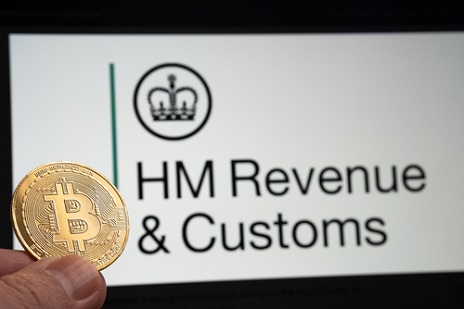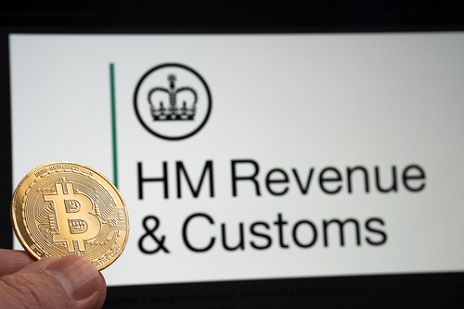
| Get all the essential market news and expert opinions in one place with our daily newsletter. Receive a comprehensive recap of the day’s top stories directly to your inbox. Sign up here! |
 (Kitco News) – While governments around the world have had no issue with attacking the cryptocurrency market, calling it the realm of thieves and criminals, and doing all they can to cut it off from the banking system, they have also shown no qualms about taxing crypto profits as well, leading some to question what all the protesting is really about.
(Kitco News) – While governments around the world have had no issue with attacking the cryptocurrency market, calling it the realm of thieves and criminals, and doing all they can to cut it off from the banking system, they have also shown no qualms about taxing crypto profits as well, leading some to question what all the protesting is really about.
The United Kingdom has become the latest country to beef up its crypto-taxing regime with the addition of a new separate category for crypto assets on its tax return forms, set to appear on the 2024-2025 tax form.
On Wednesday, the U.K. Treasury published a policy report outlining the national budget for 2023, which included an amendment to the self-assessment forms for crypto assets.
The report includes a table that outlines the anticipated expenses and revenues of the national budget, and the crypto asset line shows expected revenues in 2025-26. This indicates that British citizens will be required to declare all crypto asset gains or losses from the previous tax year, which is 2024-25.
This will be the first time that UK taxpayers will be required to separate out the profits from crypto from other income when filing their tax returns, the government said.
Under a section of the report titled “Cost of living and public services,” the Treasury included a section on “Amending the Self Assessment forms for crypto assets” that says, “The government is introducing changes to the Self Assessment tax return forms requiring amounts in respect of cryptoassets to be identified separately. The changes will be introduced on the forms for tax year 2024-25.”
Unlike the U.S., the majority of British taxpayers don’t file tax returns as the government removes all taxes owed directly from their pay. The main groups that are affected by this change are higher earners, the self-employed, individuals who need to declare investment income and those with complex tax situations.
The U.K. government estimates that this change in crypto reporting will bring in £10 million ($12 million) a year from the 2025-26 fiscal year.
The Chartered Institute of Taxation (CIOT), a leading professional body that analyzes national tax policies, released a statement on Tuesday welcoming the new changes but says there is even more work that needs to be done.
“Highlighting the need to declare crypto asset transactions in the tax return will help raise awareness of people’s obligations in this area,” wrote Gary Ashford, deputy president of the CIOT. “However much more needs to be done to counter widespread ignorance of tax payment and reporting requirements for crypto.”
The main concern highlighted by Ashford is the need to educate the public on capital gains tax (CGT) rules, as it’s estimated that less than a third of low-income taxpayers have a proper understanding of CGT.
“By April 2024, the CGT annual exemption will have been reduced to £3,000 (£1,500 for trustees), so there is a likelihood that up to 300,000 extra individuals could be subject to CGT due to this decrease,” Ashford said. “By having crypto assets clearly identifiable within the CGT pages of tax returns, this will hopefully tell investors that these investments are subject to reporting as well.”
Disclaimer: The views expressed in this article are those of the author and may not reflect those of Kitco Metals Inc. The author has made every effort to ensure accuracy of information provided; however, neither Kitco Metals Inc. nor the author can guarantee such accuracy. This article is strictly for informational purposes only. It is not a solicitation to make any exchange in commodities, securities or other financial instruments. Kitco Metals Inc. and the author of this article do not accept culpability for losses and/ or damages arising from the use of this publication.






